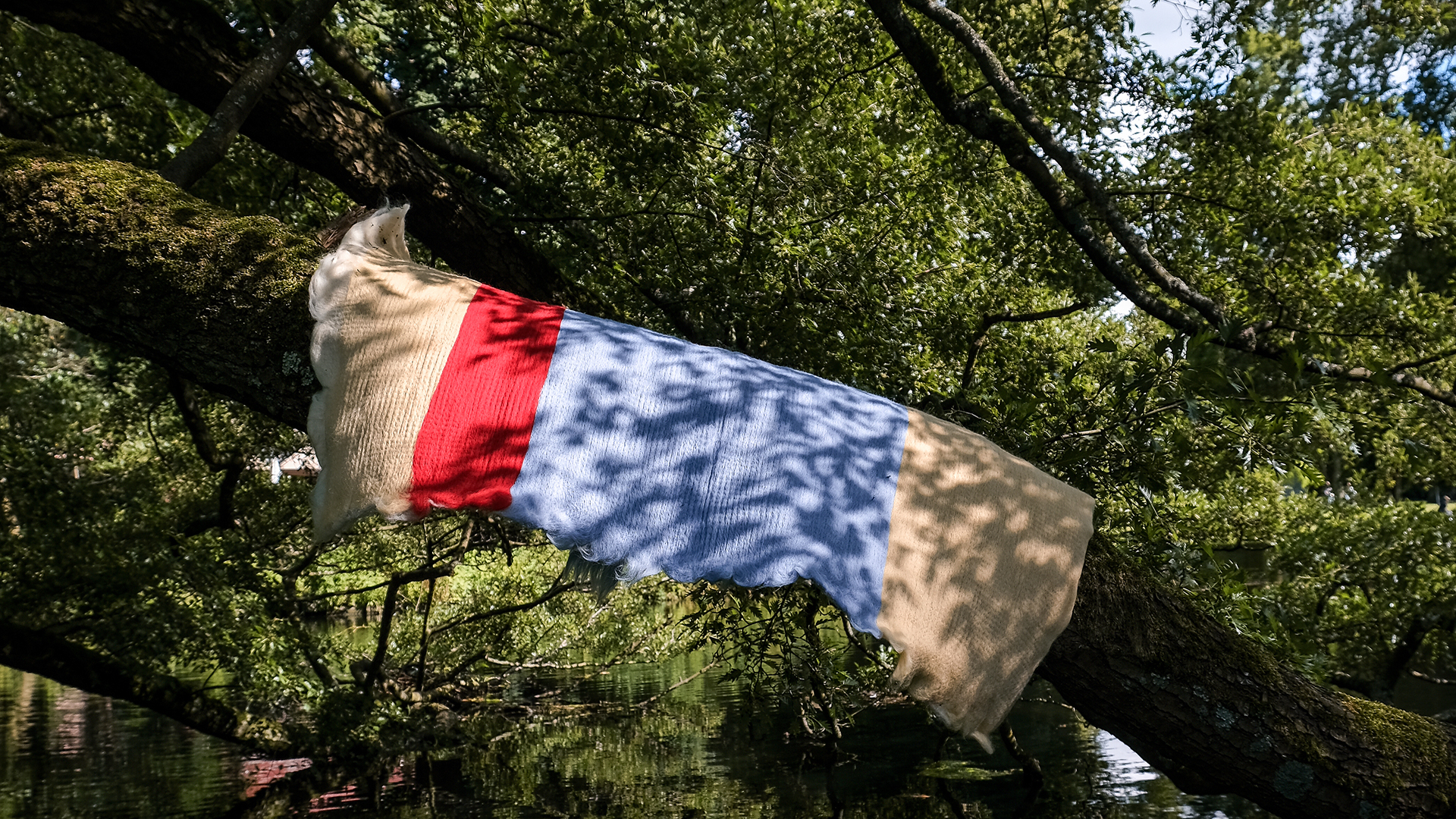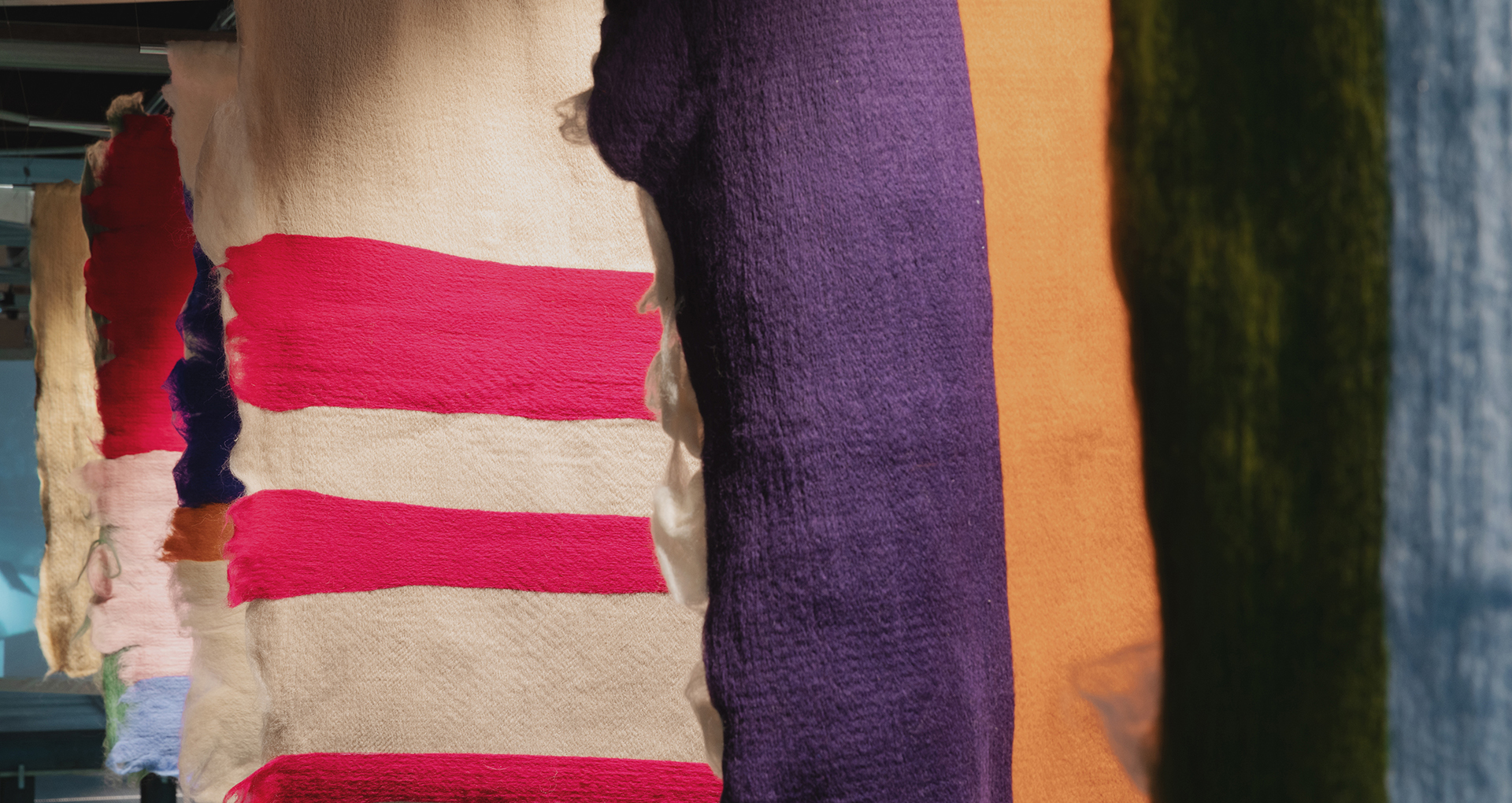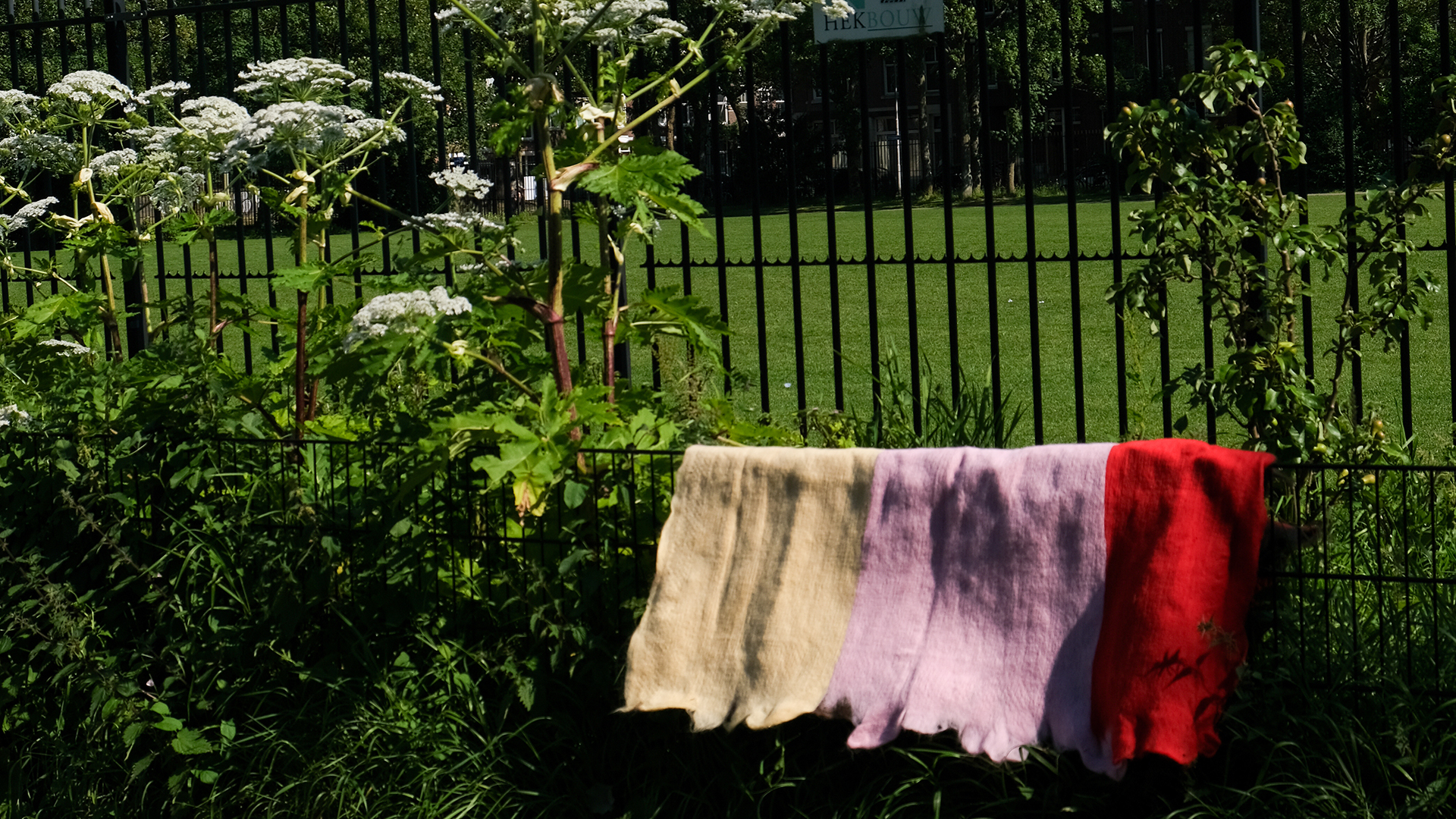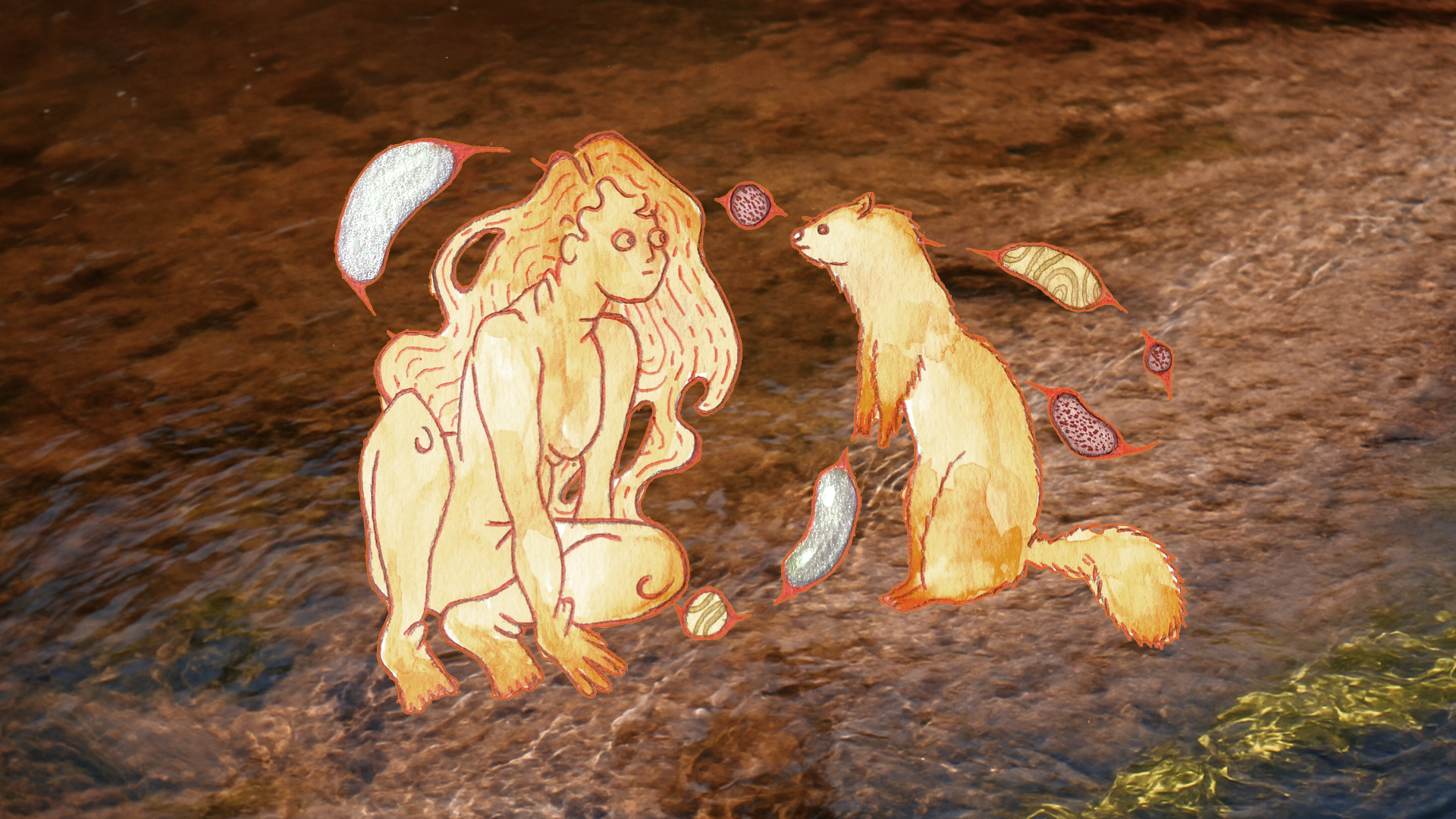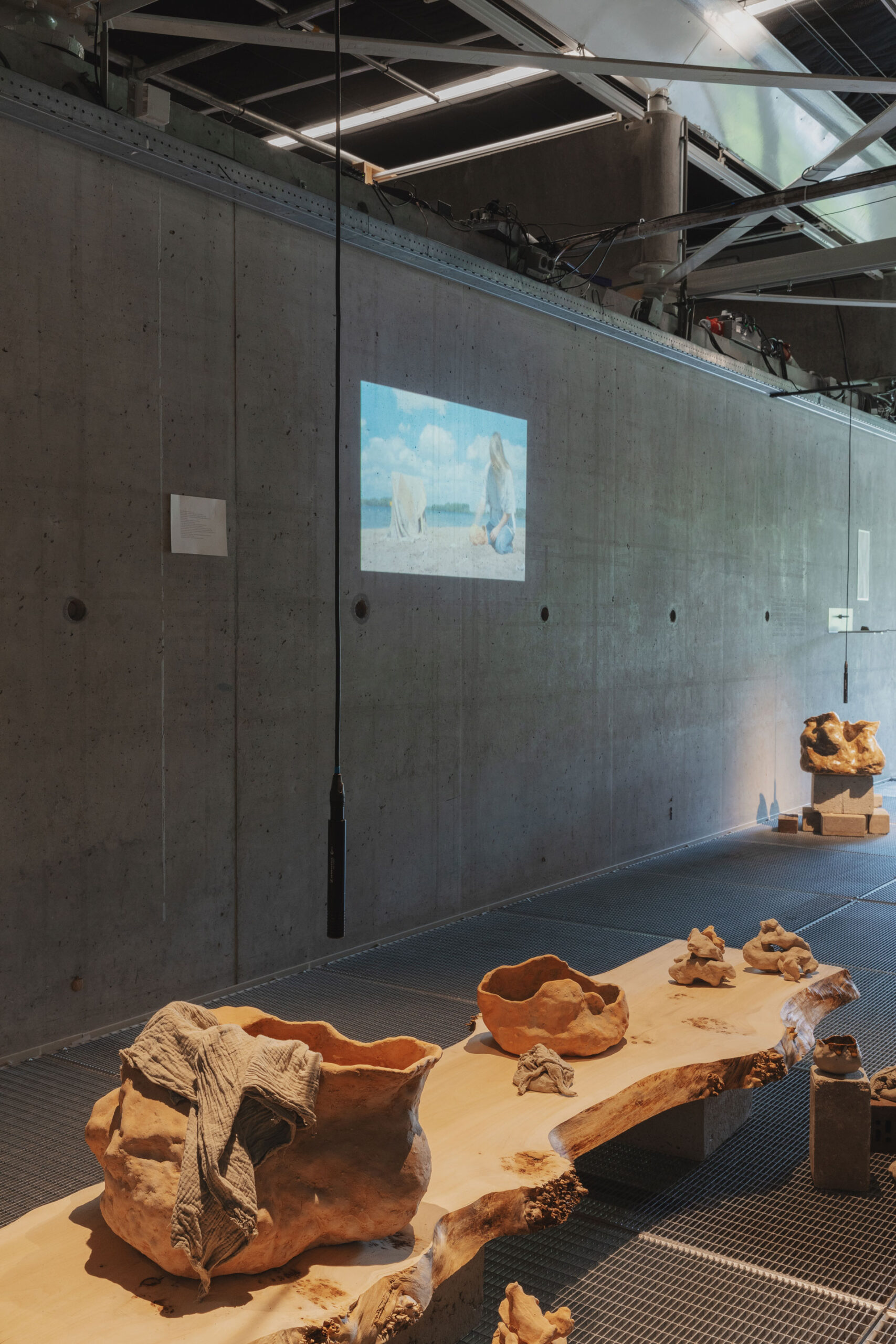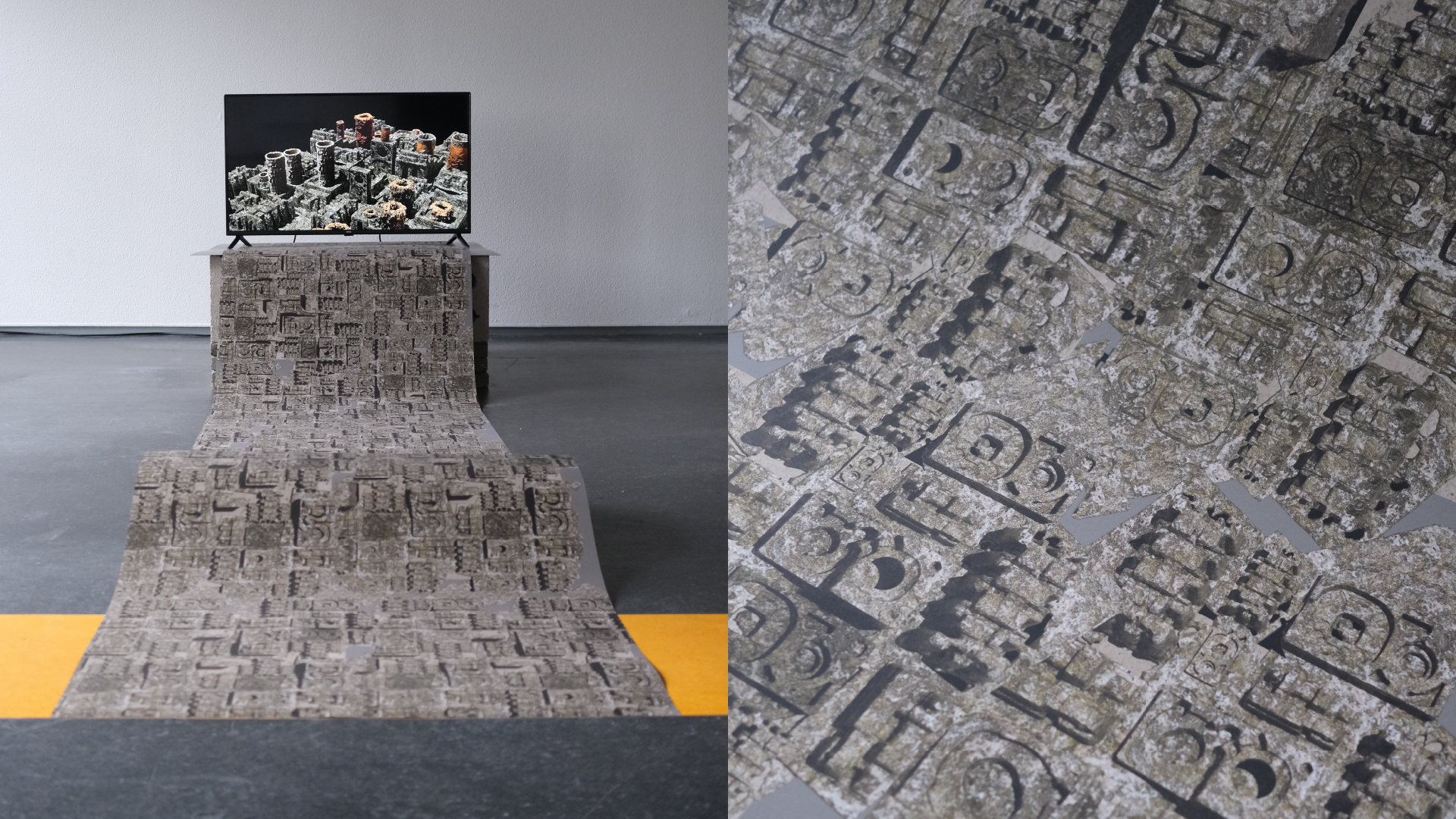Trans-Planting: Cultivating Connectivity in Urban Green Spaces
Anna Maria Zuech
2024
This project investigates the politics of plants, examining distinctions between “native” and “non-native” species and challenging colonial gardening practices. Amid climate collapse and biodiversity loss from anthropocentric activities, it underscores the urgency for adaptive strategies. Focusing on urban green spaces and plant control frameworks, the project introduces “trans-planting,” a method advocating non-intentional, non-authoritative, and non-extractive gardening. This method encourages plant movement to bridge urban nature gaps, mirroring natural seed dispersal and fostering human-non-human cooperation. The project critiques invasive gardening and static nature notions. Using woolen felted pieces as carriers of seeds, it rejects monoculture and rigid control, promoting a holistic and spontaneous urban gardening approach. With these hybrid objects, fragmented ecosystems within urban environments can be connected. These “soft” interventions aim to reintegrate humans into the natural landscape. The project emphasizes reconnecting humans with nature without controlling it, advocating co-existence, ecological regeneration, and biodiversity through flexible, hybrid gardening practices. Adaptable and temporary, these objects support biodiversity and critique traditional landscaping practices, proposing a shift towards dynamic, ecological, and inclusive interactions with urban green spaces.

